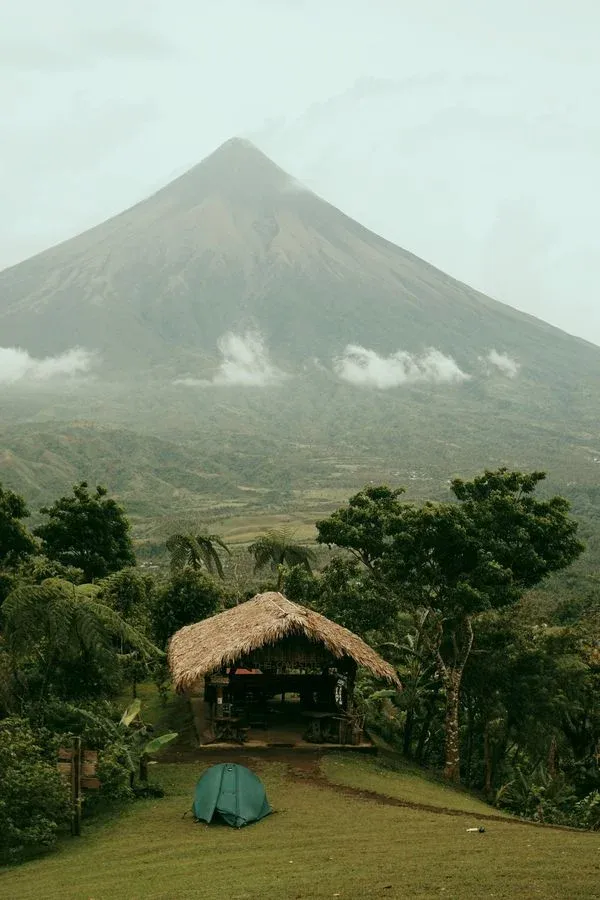Here are some of the best cultural and historical destinations that the Bicol region has to offer.
Located on the island of Luzon’s southeast peninsula, the Bicol region is
composed of six provinces, namely Albay, Catanduanes, Masbate, Sorsogon,
Camarines Norte, and Camarines Sur. The iconic Mayon Volcano, as well as an
abundance of stunning valleys, mountains, and beaches, make Bicol one of the
most scenic regions in the Philippines. Bicol is also rich in historical and
cultural significance, full of museums, monuments, ruins, and other
structures that hearken back to its colonial past.

|
| Photo by Alexis Ricardo Alaurin |
4 Cultural And Historical Highlights Of The Bicol Region
Do you consider yourself a history and culture buff? Are you raring to know
more about the Philippines’ long and storied history? Then you had best put
Bicol on your bucket list and see firsthand the wealth of stories this
breathtaking region has to share with visitors. Rest assured that you’ll find
no shortage of comfortable
hotels in Naga City, Legazpi City, and the many other developed towns and cities littered
throughout the region.
Here are some of Bicol’s most memorable cultural and historical highlights to
help you start planning your itinerary:
Peñafrancia Basilica (Naga, Camarines Sur)
The Peñafrancia Basilica is the only Roman Catholic minor basilica located in
Bicol and a popular destination for religious pilgrims from all over the
world. It houses a miraculous image of the Virgin Mary, which is colloquially
referred to as “Ina.” Venerated as the Bicol region’s principal patroness, Our
Lady of Peñafrancia receives millions of local and foreign visitors each year.
You don’t have to be religious to appreciate the basilica, however, as the
structure is also a work of art in its own right. The interior is lined with
ornate stained-glass mosaic windows depicting scenes from the Bible, and the
soaring ceiling is meticulously hand-painted.
You can visit the basilica’s quaint gift shop to purchase souvenirs and learn
more about its intriguing history. Alternatively, you can simply sit in
silence in the church proper for a peaceful respite from your travels.
If you’d like to add some excitement to your Bicol trip, you may want to visit
Naga around September. The Peñafrancia Festival, a religious festival
commemorating Our Lady of Peñafrancia’s feast day, is held during this month
and draws myriads of visitors from all over the world each year. Highlights of
the festival include a nine-day novena, daily masses, parades, and
processions.
Cagsawa Ruins Park (Daraga, Albay)
On February 1, 1814, Mount Mayon’s most violent recorded eruption destroyed
the once-lively town of Cagsawa, completely burying most of its structures in
fast-flowing volcanic matter and debris. Survivors of the eruption resettled
in the nearby village of Daraga. Today, only the outer walls and belfry of the
Cagsawa Church remain, standing in commemoration of the place and of the
people who once lived there.
Despite being a site of such deep tragedy, the Cagsawa Ruins have since become
one of the most important and well-recognized heritage sites in the
Philippines. The National Museum declared them a National Cultural Treasure in
2015, which is the highest possible designation for a cultural property in the
country. The image of the lone belltower set against the graceful backdrop of
Mount Mayon in the distance is one of the best-known sights in Bicol today.
Cagsawa Ruins Park also serves as a gateway to Mayon Volcano for visitors and
tourists. Several hiking and driving tours are available at the park for you
to choose from, including an ATV tour around Mayon’s rolling foothills. The
Cagsawa National Museum is also a must-visit spot for those who are curious to
learn about the history of the town and the surrounding area.
Ligñon Hill Nature Park (Legazpi, Albay)
Ligñon Hill is a 156-meter hill that sits between Legazpi City and Mount
Mayon. It’s affectionately known by the local population as the “Protector of
Legazpi City” for the way it shields the city from volcanic debris and other
environmental hazards. The hill and the surrounding flatland are managed by
the provincial and city governments, both of which officially designated it a
nature park.
Though Ligñon Hill Nature Park boasts a variety of attractions such as hiking
trails, bike trails, and even a 320-meter zipline, history buffs will most
want to take a walk through the famous Japanese Tunnel.
This L-shaped tunnel measures around 40 feet long and 7 feet deep and was used
as a hiding place by Japanese soldiers during World War II. Adventurous
visitors are welcome to explore the tunnel accompanied by a guide. Once you’re
inside the tunnel, you’re sure to feel like you’ve taken a trip back in time.
Bagatao Island Lighthouse (Magallanes, Sorsogon)
The Bagatao Island Lighthouse is a historical landmark located on Bagatao
Island, a small isle on the eastern side of Sorsogon Bay. The 29-foot tower is
located on the island’s southwestern headland, where its light helps
approaching ships safely traverse the perimeter of the nearby Ticao Island en
route to the Pacific Ocean.
The Bagatao Island lighthouse has been operational since 1904 and was built in
the latter days of Spanish colonial rule in the Philippines. Its construction
was part of an effort to open the Philippines to international commerce via
the Manila-Acapulco Galleon Trade.
No matter where you come from, exploring Bicol will surely awaken your
appreciation for the Philippines’ rich and colorful history. Once you discover
this region’s many wonders, you’ll want to begin planning a return trip before
you know it.
Similar stories:
This post may contain affiliate links, including those from Amazon Associates, which means that if you book or purchase anything through one of those links, we may earn a small commission but at no extra cost to you. All opinions are ours and we only promote products that we use.
Download a free copy of my Churches of Nueva Ecija eBook HERE!
Post a Comment